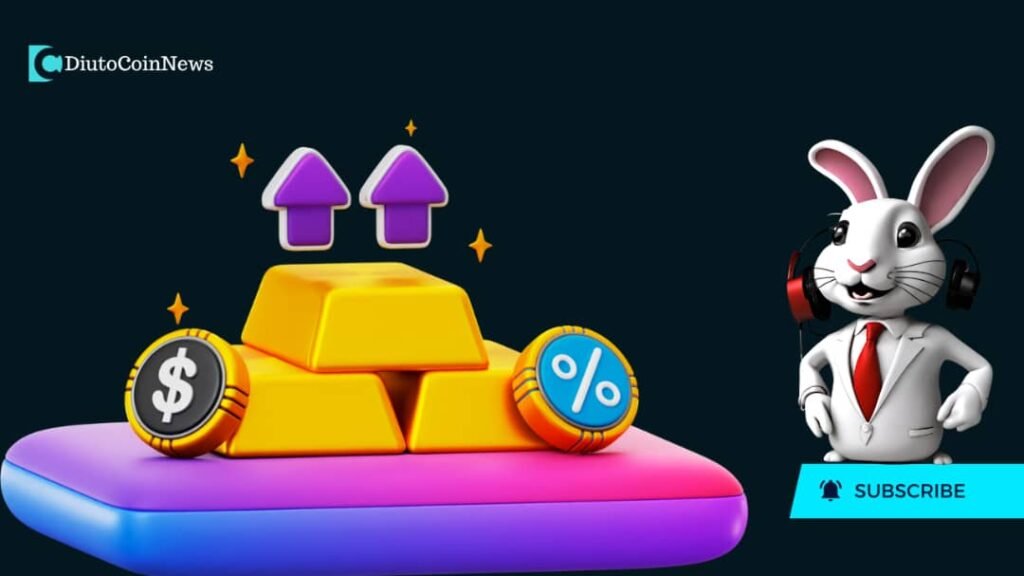Today’s betting Industry trades on promises of getting rich quick, using every trick in the book to extract the maximum value from customers, and at the same time, their best bettors are penalised by lowering their limits and closing their accounts.
“Blockchain-based prediction markets may be the one force strong enough to counterbalance the spread of incorrect information on social media. They give people a financial incentive to seek the truth and then protect them with the twin shields of pseudonymity and decentralization”
Launched in 2018, Augur is a peer-to-peer protocol for prediction markets, in which users receive payouts when they predict a winning outcome. Additionally, Augur acts as a decentralized oracle — a source that verifies real-world occurrences. It is built on the Ethereum blockchain.
The world’s only fast-resolving, easy-to-use, decentralized betting platform with daily markets for sports, crypto, politics, and current events.
Augur is a set of open-source smart contracts, coded in solidity, that can be deployed on the Ethereum blockchain. When executed, these smart contracts settle payments in ETH with participating users.
Augur Native Token REP
Augur operates with two cryptocurrencies. REP (or reputation) is a staking token used by reporters to clarify disputes on outcomes of the prediction market. Users lock REP tokens in escrow, thereby staking them, in order to assert the outcome of a particular created market. There is a specific incentive structure incorporated in augur’s platform that rewards reporting on correct outcomes, penalizes reporting on incorrect outcomes, and penalizes passive holders who don’t stake on disputes and forks.
The augur protocol is supported by The Forecast Foundation – a group of developers who contribute to the maintenance and development of the protocol, but do not own or control it. The foundation does not receive fees from the protocol and has no role in the operation of created markets among other restrictions.
How does Augur work?
Vision
Augur was founded in 2014 by Jack Peterson and Joey Krug. They sought to create a shift away from traditional prediction markets, which are centralized, meaning participants needed a trustworthy entity to maintain an honest ledger of truth. Similarly, to determine the outcome of a predictable event, an impartial, trusted judge needed to conclude a correct outcome to distribute payouts.
Augur aimed to eliminate the risk of self-interested behavior, corruption and theft by decentralizing the prediction markets. The protocol operates through automated executable smart contracts that pull information from augur’s oracle, a source of information flowing from the real world to the blockchain. Augur markets flow in stages of creation, trading, reporting and settlement.
Launch and Issuance
In 2015, Augur facilitated one of the first initial coin offerings (ICO) on Ethereum and raised over $5 million through the sale of REP tokens. It originally sold 80%, 8.8 million REP, to raise these funds. The sale was conducted in four rounds, and the price paid was dependent on the final price of the token sale and a discount depending on which round the tokens were purchased.
Network Design and Security
The augur markets are a set of open-source smart contracts, coded in Solidity, that are deployed on the ethereum blockchain. When executed, these smart contracts settle payments in ETH with participating users.
Users can create a market based on any real-world event, and upon creation, trading begins. When creating a market, the user builds a smart contract with the market’s rules outlined in the code. All users in the network have the ability to trade, until the event in which the market is based has occurred. Once the outcome is determined via augur’s oracle system, traders close out their position and potentially collect their payouts.
Reporters report on a market by staking REP tokens on a possible outcome. This is the act of a reporter declaring the “truth,” staking the real-world outcome of the market’s underlying event. The consensus of the market’s reporters is considered the “truth,” which allows augur to act as a decentralized oracle.
REP holders must stake their tokens on correct outcomes to receive an incentivized reward, a portion of the market’s settlement fees. If a report is incorrect, the reporter receives a penalty that negates the potential reward fees. REP holders that do not stake on disputes or participate in a fork (a large dispute) are also penalized. Once a market is reported and the “truth” is discovered, ETH is rewarded in settlement to those who predicted the correct outcome.
According to augur’s whitepaper, the trustworthiness of the forking process to be effective upon a large network dispute corresponds to REP’s market cap. If the market cap is large enough and attackers are economically rational, the attackers would not mount an attack because it would be too costly. If forks are trusted for large disputes, the incentives in place can encourage users to behave honestly without initiating a fork. A fork takes up to 60 days to resolve as a more stringent process for a highly disputed single market.
Token Supply.
The REP supply is capped at 11 million tokens, and when REP is earned it is received from another reporter on the network. When reporters report an outcome incorrectly, they are penalized, as are those users who do not participate in reporting. The REP taken as a penalty is then able to be earned by reporters correctly reporting real-life events, along with the reward of dynamically adjusted settlement fees.
How To Use Augur and Where To Trade The Token.
1. Wallet
You will need a wallet to connect to Augur. Luckily, you can choose to sign up for one from a variety of choices directly on the app.
Your wallet can be thought of as similar to Venmo or Cash App (except your wallet provider cannot access your funds), but it can also be used to log-in and use money within apps (like Augur). Unlike most apps, which require a log-in and password sequence for each one, your single wallet allows you to log-in and interact with most Ethereum apps.
Your wallet displays your balances and allows you to send and receive money using your public address and private keys.
Whenever you make trades on Augur, you send and receive your money and outcome tokens from a public address. It might look scary, but this harmless little number sequence is unique to you, and can be thought of as similar to an email address.
Example of public address: 0xDC25EF3F5B8A186998338A2ADA83795FBE
Wallets will also give you a private key, which you can think of as a password required to access and spend the funds in your wallet.
Example of private key: 8da4ef21b864d2cc526dbdb2a120bd2874c36c9d0a1fb7f8c
If you lose your key to your wallet, there may be no way to help you regain access to it and your funds. Always keep your private key a secret and ensure that you have it safely backed up elsewhere.
Your wallet provider will also give you access to a backup phrase that will help recover your wallet in case you lose or forget your private key. Nobody has the ability to recover your wallet or funds if you lose your private key AND backup phrase.
Example of backup phrase: jealous expect hundred young unlock disagree major siren surge acoustic machine catalog
Note: Augur will have easy-to-use wallet providers within the app which will allow you to sign up and secure funds with a username and password
2. Cryptocurrency
The digital money you keep inside of your wallet is called cryptocurrency. On Augur, you’ll only need to have DAI to bet. DAI is a cryptocurrency that attempts to mirror the dollar; meaning, generally, 1 DAI = 1 USD in value.
In most geographies, you can purchase DAI directly with a credit card; or you can purchase another cryptocurrency of your choice, such as ETH, which can be converted into DAI directly within the app.
When you wish to withdraw or move into fiat money, you’ll simply sell your DAI for the relevant currency.
Note: Augur’s built in wallet providers will allow you to buy DAI directly with a credit card
3. Transactions
While Augur has exceedingly low fees for winning traders, its use of a blockchain means that additional transaction fees (called gas) must be paid for actions* such as taking a trade from the order book (while making an unmatched trade does not require a fee).
*In addition, when first signing up, activating your account will trigger a one-time transaction fee which facilitates the ability to bet and pay gas in the same currency, whereas otherwise you would need to use separate ones.
The activation will set aside a portion of your DAI, called fee reserve, for paying fees and top off this amount when it gets low. You can always withdraw any unused DAI from your fee reserve.
These fees are not paid to Augur, but rather are paid to a group of participants on Ethereum called miners. When you submit a transaction; in other words, validate that the transaction is coming from you; your order gets sent to miners.
These miners process your request by deducting or increasing your balance and the balance held by the smart contract for your market.
Where To Buy Augur ?
If you would like to know where to buy Augur, the top cryptocurrency exchanges for trading in Augur stock are currently Binance, OKX, CoinTiger, Mandala Exchange, and Hotcoin Global
Discover more from DiutoCoinNews
Subscribe to get the latest posts sent to your email.













